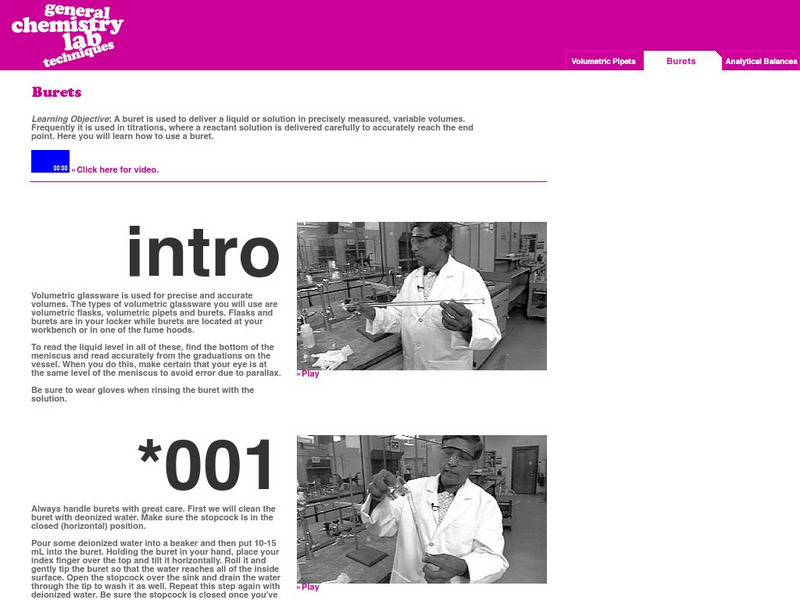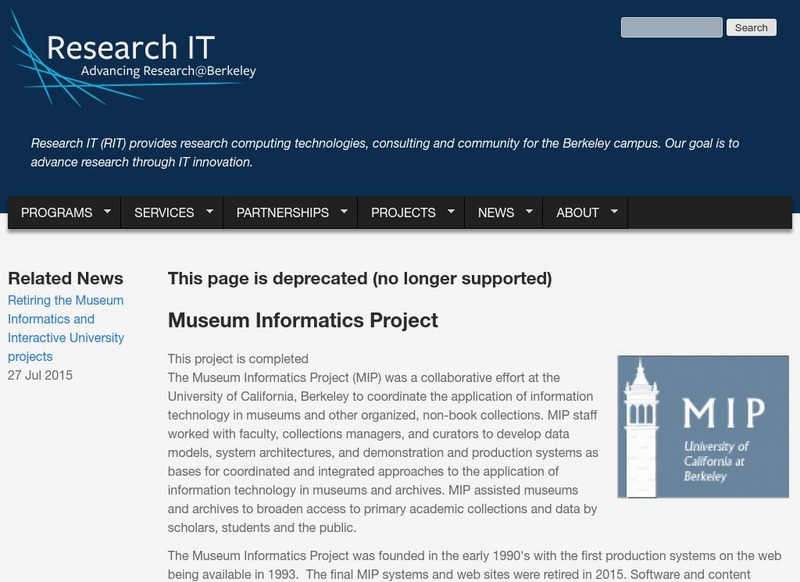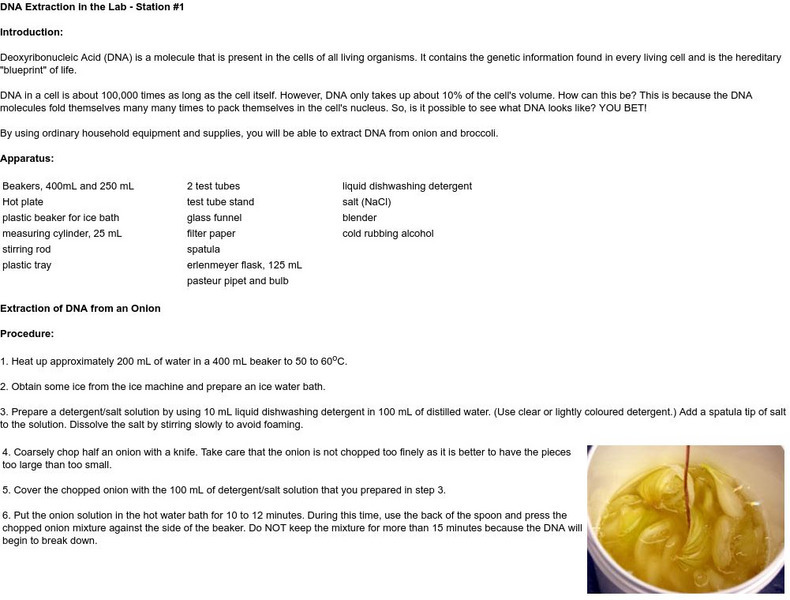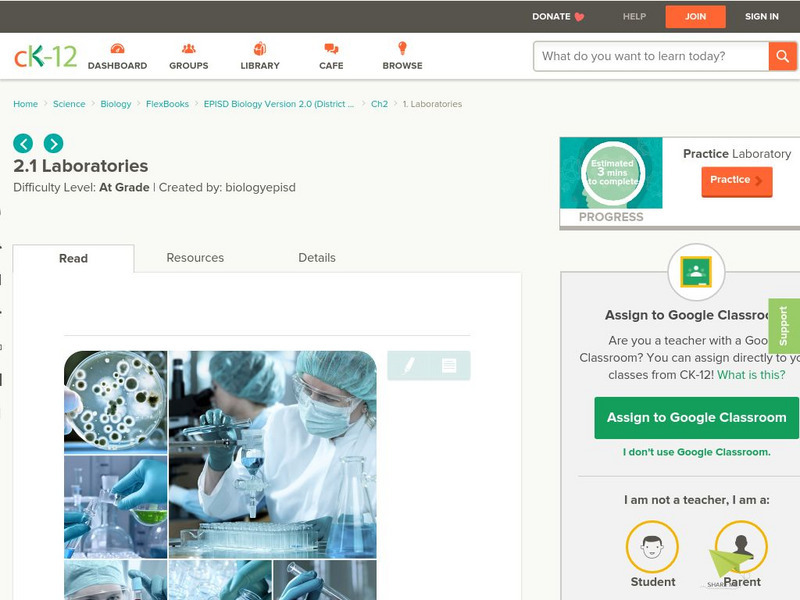Hi, what do you want to do?
Curated OER
Can You Catch Your Breath?
Young scholars apply the the scientific method to an investigation.They develop and perform a scientific procedure for determining lung capacity. In addition, they write a report to display information and share their procedures with...
Curated OER
The Cricket and The Plant
Students examine determine the symbiotic relationship between plants and animals as the find ways to naturally reduce carbon dioxide emissions. They study the carbon cycle. They work with probe and graphing calculator to examine the...
Curated OER
A Worm World
Students maintain a compost bin and build a worm observatory. They design experiments relating to worms and record observations in a worm journal.
Curated OER
Molar Ratio
Students conduct an experiment in which they react sodium bicarbonate with hydrochloric acid to determine the molar ration between the two reactants. Students must write correct formula and a balanced chemical equation and explain how...
Science Struck
Science Struck: Uses of Crucible Tongs
Discusses what tongs are used for and why crucible tongs are a very important tool in a laboratory and other settings. Describes the different types of crucible tongs, their uses, and some safety tips.
Howard Hughes Medical Institute
Hhmi: Biointeractive: The Virtual Neurophysiology Lab
Investigate the nervous system by looking at nerve cells in this virtual lab. This lab exercise allows students to experience a virtual dissection of a leech to use electronic equipment to explore the electrical activity of nerve cells....
Yale University
Yale University: General Chemistry Lab Techniques: Burets
Tutorial shows proper procedure for handling a buret and using this piece of laboratory equipment to measure liquid volume. View accompanying video full-length [18:00] or in segments.
Science Education Resource Center at Carleton College
Serc: Mn Step: Study of Student Precision Using Volumetric Glassware
This activity is an exercise in using various lab equipment for measuring the volume of a liquid. Data is recorded on a spreadsheet and analyzed to see which tool offers the greatest precision.
Dartmouth College
Dartmouth College: Chem Lab: Analytical Balance
Use this site to learn how analytical balances are used when you need a high degree of precision. Find out the proper use and care of this very sensitive instrument. Requires QuickTime plug-in for some features.
University of California
University of California Berkeley: Charging an Electroscope by Induction
From the U.C. Berkeley Physics Lecture Demonstrations website. A thorough description of an activity in which a charged metal plate is used to charge an electroscope by induction. Complete directions and a diagram of the equipment and...
Science Struck
Science Struck: What Is a Buchner Funnel? Setup, Structure, and Uses
Learn what a Buchner funnel is, how it works to filter solids from liquids, and some of its applications.
Other
British Columbia Institute of Technology: Extraction of Dna
A lab experiment to extract DNA from an onion using household equipment. Procedure includes both videos and pictures.
Science Struck
Science Struck: The Numerous Uses and Methods of Using a Petri Dish
Learn about the important role the petri dish plays in enabling the study of microorganisms, some of its uses, and how petri dishes are used.
Dartmouth College
Dartmouth College: Digital P H Meter
This site explains how a digital pH meter uses an electrode to measure the pH of a solution Find out how to use this instrument in this informative site.
Dartmouth College
Dartmouth College: Pipet
A concise but informative explanation of what a pipet is and how to use a pipet bulb.
Dartmouth College
Dartmouth College: Top Loading Balance
Use a top loading balance to weigh solid material when a precision of 0.1 is adequate. Find out how to operate this instrument in this concise site.
CK-12 Foundation
Ck 12: Laboratories
[Free Registration/Login may be required to access all resource tools.] Students learn about science laboratories, the types of equipment that are used in them, and about safety guidelines in a laboratory.
National High Magnetic Field Laboratory
Magnet Academy: Mass Spectrometry: How to Weigh an Atom
It's hard enough to weigh something as itty bitty as atoms or molecules. Factor in that they're careening by faster than Jeff Gordon on steroids, and you get an idea what scientists are up against. Using comet particles from NASA's...
National Health Museum
Access Excellence: Wolf Pack in a Bottle: Dna Simulation
This lesson plan can be used to illustrate the principle of electrophoresis without the equipment. Paper chromatography can be used to separate dye just like electrophoresis will separate DNA. The lab also covers DNA analysis for an...
National High Magnetic Field Laboratory
Magnet Academy: Mass Spectra
The mass spectrum of a material, deduced using a machine called a mass spectrometer, reveals how many isotopes of a given element are to be found in the material. See here what these spectra look like and how they are useful. (Java...
TeachEngineering
Teach Engineering: Simple Coulter Counter
Students build and use a very basic Coulter electric sensing zone particle counter to count an unknown number of particles in a sample of "paint" to determine if enough particles per ml of paint exist to meet a quality standard. In a lab...


















